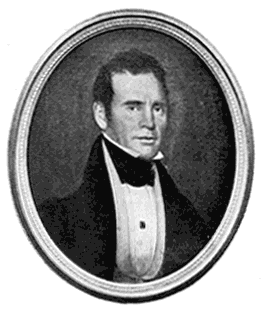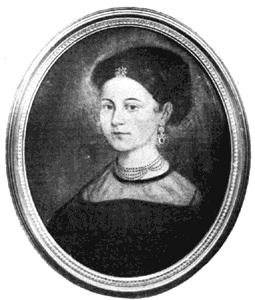| Home -> James H. Barry Press -> The Great Diamond Hoax - Chapter XII | |||
|
Chapter XII.
Arrest of Accomplice Alarms Author and on Advice of Friends He Takes Flight. Amnesty Act Unlocks Prison Doors of Conspirators, But Fails to Bring Security. In war times, the American Eagle was not a bloodthirsty bird. We began to have sympathizers, even among prominent Union men. Greathouse was released after a brief confinement under a general amnesty act and upon taking the oath of allegiance. Rubery, a foreigner, could not take advantage of the amnesty act. However, at the request of John Bright, President Lincoln granted him a free pardon. But the astute statesman arranged that his precious nephew should not be involved in future trouble because of his Southern proclivities. He was placed on a Pacific Mail steamer and transferred at the Isthmus to a British ship bound for England. We had an affectionate parting, with the hope that we might again meet, a wish that was realized in a dramatic manner. I alone was held, because it had been shown that I had a commission in the Confederate Navy. In almost exactly four months after my sentence, I was brought before Judge Hoffman and ordered released, under the same general amnesty act. The fine was likewise remitted. I am not versed in legal technicalities, but it seemed to me that the learned jurist stretched the strict letter of the law a bit in my behalf. Be that as it may, I always held the name of Hoffman in high esteem. I was free at last, but only to enter into a new kind of bondage. I was broke. The fortune I had won by incredible good luck had vanished absolutely. What was worse, my mine in Mexico was abandoned during the French invasion and my title to it finally lost. It yielded wealth to other owners later on. I never saw my old chum Don Miguel Paredis again, but he kept his money and cut quite a figure in Mexican affairs. When I stepped out of Broadway jail I was outwardly chesty, but inwardly depressed, for I had just eight dollars and fifty cents to my name. Having been a free spender at one of the leading hotels in my capitalistic clays, I went to the proprietor and frankly made a clean breast of my impecuniosity. He was overjoyed to receive me as his guest, gave me a fine room and settled all my anxiety as to lodging and three square meals a day. That was nothing out of the common in the old days. But I would like to see the photograph of a man with nerve enough to make such a proposition to the manager of one of our first-class hotels in the present generation. Still my financial affairs gave me no little concern. I thought of writing to my father for temporary assistance, but there was an impediment even there. While I was raising Cain, and wasting my substance for the South in California, my progenitor was one of the strongest Union men in Kentucky. Some rather crisp correspondence had passed between us on that subject. Doubtless he would have been glad enough to assist or welcome the prodigal. But I was too proud to seek his aid. This may justify a word of explanation. My father was a lineal descendant of Baron Harpending, who came to New York, New Amsterdam, with the original settlers from Holland. It was one of his ancestors who gave a lease for ninety-nine years to the Dutch Reformed Church of a piece of property in the business center of New York, now worth, approximately, three hundred million dollars. It was another Trinity Church case, with this exception, that there was no doubt about the lawful heirs when the lease terminated. My father brought suit to recover the property. That was one of the great lawsuits of the last century. Henry Clay, Daniel Webster and Judge Underwood were my father's counsel. He won the case in the lower courts, but was vanquished in the Supreme Court of the United States on a technicality by a four to three decision. The family lost the vast property, but the church still displays the Harpending arms, as required by the lease of my ancestor, executed nearly 175 years ago. My mother, on the other hand, was of the Clark family of Virginia, which settled in Kentucky over a hundred years ago. She was of the typical Southern strain. Thus, while my father, with his Northern antecedents, was an ardent supporter of the Union cause, I had the maternal blood in my veins. How we came to take opposite sides in the great civil struggle was an instance of plain heredity, nothing more. But that has nothing to do with this story. While I was worrying over finances, not knowing which way to turn and mighty downcast and blue-deviled, I was suddenly informed that my companion, Mr. Ridgley Greathouse, had been rearrested and was in custody. Ignorant of the charge and not having the wherewithal to fly, to say nothing of inclination, I determined to put on a bold front, walked down to the United States marshal's office and asked him if he wanted me. The mental processes of that functionary were of a leisurely nature. He looked me over with great care, scratched his head with a pen in a meditative way, slew a distant fly with a well-directed squirt of tobacco juice and answered, weighing each word, "Well, not to-day, but I guess I will to-morrow. Where do you live?" I gave him the name of my hotel and the number of my room, which data being duly noted, we bade each other good-day. To tell the truth, I was badly rattled. Nothing seemed more certain than that I was doomed to incarceration on a new charge, and, having enjoyed the public hospitality for almost a year, I had no stomach for any more. Just as I reached my hotel, filled with these disturbing thoughts, a friend asked me to go with him to a business office. I sat down in the reception room, while my friend disappeared in a rear office. I could hear the sound of voices and the clink of gold. Presently my friend reappeared, carrying a small coin sack. "Harpending," he said; "you are certain to be arrested on some sort of an accusation. The Yankees will never let you stay at large. There are fifteen of us who have subscribed a hundred dollars each. Here is the money. We will also provide you a good horse and necessary equipment. You must leave to-night." I asked the privilege of meeting my friends and was accorded the privilege. Several were not overburdened financially, and $1,500 was more than I could reasonably need. I selected the three richest, gave each of them my promissory note for $100, and returned the other contributions. We talked more or less of plans. I was advised to ride south to the neighborhood of Santa Cruz, across the mountains to the plains, and journey thence through the San Joaquin Valley to what was then known generally as the "Tulares," where such inhabitants as there were came mostly from the South and where, more important still, the law writs did not run. So, shortly after dark, I made my preparations and proceeded to put as many miles between myself and San Francisco as the means of travel would permit. I turned down the horseback proposition, slipped on a southbound train in the evening and before midnight reached its terminus, San Jose. |
|||
 The Author's Father A. Hardending Sr., a supporter of the Union. |
|||
 The Author's Mother Mrs. A. Hardending Sr., an ardent Southern sympathzer. |
|||